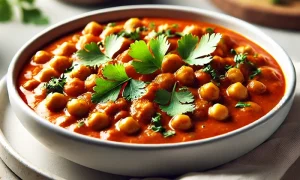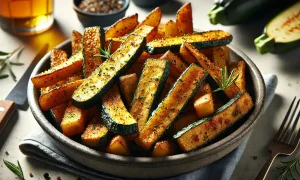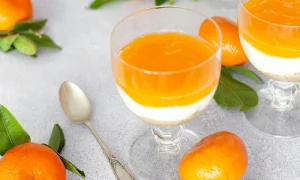Best Vegan Substitutes for Baking: Essential Swaps for Dairy and Eggs

Vegan baking has grown in popularity, offering delightful alternatives to traditional ingredients that cater to those following a plant-based diet. The key to vegan baking is finding the right substitutes that maintain taste, texture, and structure without the use of animal-derived products. Whether you’re well-versed in the kitchen or trying your hand at vegan treats for the first time, understanding which ingredients work best can transform your baking experience. From vegan butter alternatives to plant-based milks, the range of substitutes available means you can enjoy your favorite baked goods with a clear conscience.
One of the most common challenges in vegan baking is replicating the binding and leavening properties of eggs. Several innovative solutions have emerged, like flax or chia seeds mixed with water, which serve as excellent binding agents. Meanwhile, dairy-free milk substitutes, such as soy or almond milk, are simple one-to-one replacements offering similar consistencies to cow’s milk. Vegan bakers have also mastered the replacement of sweeteners and flavors, utilizing natural sweeteners like maple syrup and vanilla extract, which lend themselves well to an array of recipes. From light and fluffy cakes to chewy cookies, each vegan substitute plays a crucial role in achieving the perfect final product.
Key Takeaways
- Plant-based substitutes can effectively replicate the taste and texture of traditional baked goods.
- Replacing eggs and dairy requires understanding suitable vegan alternatives and their proportions in recipes.
- Experimentation with various vegan substitutes can lead to successful, delicious vegan baked creations.
Understanding Vegan Baking
In vegan baking, you replace traditional animal-based ingredients with plant-based alternatives. These substitutes often change the texture, flavor, and moisture of baked goods, but they also bring health benefits and cater to specific dietary preferences.
The Role of Traditional Ingredients
Traditional baking ingredients like eggs, butter, and milk play crucial roles in providing structure, richness, and moisture. Eggs act as binders, helping to hold the ingredients together, while butter contributes to the flaky layers and tender crumb due to its fat composition. Milk adds moisture and helps in the development of gluten, influencing the texture of the bake. Recognizing the importance of these ingredients is the first step in effectively replacing them in your vegan recipes.
Benefits of Vegan Substitutes
Vegan substitutes not only align with plant-based lifestyles but can also offer health advantages and open up a world of new flavors. For instance:
- Flaxseeds or chia seeds, when mixed with water, can mimic the binding properties of eggs, alongside adding omega-3 fatty acids and can be good sources of protein.
- Coconut oil and margarine are popular butter replacements, providing the needed fat without dairy.
- Plant milks, such as almond, soy, and oat milks are versatile liquids that infuse baked goods with distinct subtle flavors while contributing to the desired moisture content.
Making these switches can result in baked items with diverse textures and specific tastes that might surprise you with their similarity to their non-vegan counterparts.
Vegan Butter Alternatives
In the realm of vegan baking, substituting butter is essential, yet it need not compromise flavor or texture. Two popular alternatives, coconut oil and homemade vegan butter, stand out for their unique qualities and versatility in recipes.
Coconut Oil as Butter
Coconut oil is an excellent vegan substitute because it can mimic the high-fat content of butter. When using it in baking:
- Use solid, refined coconut oil to avoid a coconut flavor unless that’s desired.
- Replace butter with coconut oil at a 1:1 ratio.
Homemade Vegan Butter
Creating your own vegan butter blend allows for control over flavor and ingredients. To make a basic version:
- In a blender, combine 1 cup of refined coconut oil, 1/4 cup olive oil or another neutral-tasting oil, 1/2 cup unsweetened soy or almond milk, and 2 teaspoons of liquid lecithin.
- Blend until smooth and refrigerate to achieve a buttery consistency.
Dairy-Free Milk Substitutes
When baking without dairy, selecting an appropriate milk alternative is crucial to ensure your baked goods have the right taste, texture, and moisture level.
Nut Milks in Baking
Nut milks, like almond milk, are a popular dairy substitute due to their mildly sweet flavor and light consistency. You can use them in a 1:1 ratio when replacing cow’s milk. However, for a richer flavor, consider choosing the unsweetened varieties to control the sugar levels in your recipe.
Soy and Rice Milk Variations
Both soy milk and rice milk are versatile dairy-free milk options for baking. Soy milk’s protein content closely resembles that of cow’s milk, which helps with the structure of baked goods, while rice milk’s thinner consistency and sweeter taste work well for items like cakes and muffins. You’ll want to be mindful of their distinct flavors when substituting them for dairy milk.
Using Coconut Milk
Coconut milk is your go-to for adding a rich, creamy texture to baked goods. Its higher fat content can enhance the mouthfeel of your desserts, closely mimicking the role of cream or buttermilk in traditional recipes. Use it in the same quantity as dairy milk for luscious pies and pastries.
Replacing Eggs in Recipes
When baking vegan treats, finding the right egg substitute can make the difference between a good dessert and a great one. Here’s a look at some of the best options to replicate the binding, leavening, and emulsifying properties of eggs in your baking.
Binding with Bananas and Applesauce
Using bananas
as an egg substitute not only adds moisture to your baked goods but also acts as a binder. A half of a mashed banana can replace one egg, and works particularly well in dense, moist cakes and brownies. Similarly, applesauce can be used in a 1:4 ratio (one-quarter cup per egg), perfect for muffins and cookies due to its mild flavor and binding qualities.
Using Flaxseed and Chia Seeds
Both flaxseed and chia seeds can be ground and mixed with water to create a gelatinous mixture that mimics the binding property of eggs. To replace one egg, simply mix one tablespoon of flaxseed or chia seeds with three tablespoons of water and let it sit until it becomes gel-like. This method is ideal for chewy baked goods like oatmeal cookies and also adds fiber and omega-3 fatty acids.
Aquafaba as an Egg White Substitute
Aquafaba, the liquid from a can of chickpeas, can surprisingly mimic egg whites. Use three tablespoons of aquafaba to replace one egg white. It’s perfect for making meringues, marshmallows, and light cakes where the fluffiness of egg whites is desired.
Silken Tofu for Moisture and Protein
Lastly, silken tofu is a soy-based egg replacer that adds moisture and protein to your vegan baking. Use a quarter cup of blended silken tofu to replace one egg. It’s best used in dense, rich desserts like brownies and custards, where it contributes to a creamy texture without a strong tofu flavor.
Sweeteners and Flavor Enhancers
When baking vegan treats, traditional sugars and honey can easily be replaced with plant-based sweeteners that offer rich flavors and varying degrees of sweetness to suit your recipe.
Maple and Date Syrups
Maple Syrup provides a distinct, rich sweetness to baked goods, with a flavor that’s especially welcome in autumnal recipes or breakfast items like pancakes and waffles. As a natural sweetener, it’s an excellent choice when you’re looking for a liquid substitute for granulated sugar.
Date Syrup, on the other hand, is less known but incredibly flavorful. Hailing from the concentrated nectar of dates, this syrup offers a caramel-like taste that pairs exceptionally well with dessert recipes that require a deep, fruit-based sweetness.
Using Molasses and Fruit Purees
Molasses is a byproduct of refining sugarcane or sugar beets into sugar, but in its own right, it’s a powerhouse of flavor. Dark molasses gives a robust profile that can enhance the taste complexity of your baked goods. It works well in recipes like gingerbread or spice cakes, where its intensity complements other spices.
Meanwhile, Fruit Purees serve a dual function as sweeteners and moisture-adders. For example, banana puree can be used to add sweetness while keeping your baked goods moist without altering the texture. Since fruits like bananas naturally contain sugars, they’re a healthy alternative to processed sweeteners and double as flavor enhancers, imbuing your bakes with a subtle, delightful fruitiness.
Vegan Leavening Agents
In vegan baking, substituting traditional leavening agents is crucial to ensure your recipes rise and gain the proper texture. Explore how baking soda and baking powder, aquafaba, and acidic reactions with vinegar or lemon juice can serve as effective vegan-friendly alternatives.
Baking Soda and Baking Powder
These two are staple leavening agents in baking. Baking soda (sodium bicarbonate) requires an acid to activate, creating carbon dioxide and causing dough or batter to rise. Baking powder, on the other hand, already contains an acid and only needs moisture and heat to react. For your vegan baked goods, you can continue to use these as they are inherently vegan.
- Baking Soda
- Activator required: Yes
- Baking Powder
- Activator required: No
Whipping Aquafaba
Aquafaba, the liquid from a can of chickpeas, can be whipped into stiff peaks similar to egg whites. It’s a brilliant leavening agent for vegan meringues, mousses, and cakes. Use 3 tablespoons of aquafaba to replace one egg. The whipping action incorporates air, providing lift and fluffiness to your baked treats.
- Aquafaba
- Egg replacement: 3 tablespoons equals 1 egg
Vinegar and Lemon Juice Reactions
Both vinegar and lemon juice are acids that can react with baking soda to produce carbon dioxide, contributing to the rise of your vegan baking creations. When mixed with baking soda, they produce a chemical reaction that leads to leavening. This method is especially good for cakes and quick breads.
- Vinegar Reaction
- Mix with: Baking soda
- Lemon Juice Reaction
- Mix with: Baking soda
Remember to measure precisely, as the balance of acidic to basic ingredients is key to the perfect rise.
Vegan Thickening Agents
In vegan baking, finding the right thickening agent is crucial to achieving the perfect texture. While eggs typically provide this property in traditional baking, several plant-based alternatives can perform just as efficiently.
Starches and Tapioca
When looking for a reliable thickener in your vegan recipes, consider starches like tapioca. Derived from the cassava plant, tapioca starch is a highly effective binder that lends a chewy and springy texture to your baked goods. It excels in pie fillings and puddings, where a transparent and glossy appearance is desired.
- Usage Tips for Tapioca Starch:
- Ideal for acidic dishes.
- Use sparingly to prevent a slimy texture.
Arrowroot and Cornstarch Applications
Arrowroot powder and cornstarch are two other prominent thickeners. They are most effective when you need a neutral flavor and desire a lighter, more delicate texture. Arrowroot is best used in recipes requiring freeze-thaw stability, whereas cornstarch is a versatile thickening agent suitable across a wide range of baking needs.
- Comparing Arrowroot and Cornstarch:
- Arrowroot: Best for glazes and fruit pie fillings.
- Cornstarch: Optimal for custards and sauces.
Both arrowroot and cornstarch are mixed with a cold liquid before adding to your preparation to avoid clumping when heated. Remember, the right choice of thickener can make all the difference in your vegan baking adventures.
Substitutes for Creams and Custards
In vegan baking, you can recreate the richness typically provided by dairy creams and custards using plant-based ingredients. These substitutions not only mirror the textural qualities but also contribute unique flavors that enhance a variety of desserts.
Coconut and Cashew Creams
Coconut cream is a superb dairy-free alternative that’s rich and creamy, making it ideal for vegan recipes. To use coconut cream as a substitute, refrigerate a can of full-fat coconut milk, and the cream will separate to the top. You can then scoop out the solidified coconut cream and whip it until it achieves the desired consistency for your desserts. It works excellently in recipes where you desire a hint of tropical flavor.
In contrast, cashews lend a neutral flavor and are perfect for creating a smooth base for creams. Soak cashews in water for 4 hours or overnight, then blend them until smooth to make cashew cream. For a richer texture, mix it with a bit of plant-based milk and a sweetener of your choice. This cream is versatile and can function in sweet as well as savory dishes.
Vegan Custard Techniques
Creating a velvety vegan custard is straightforward when you know the right substitutions. Silken tofu, when blended, provides a custard-like consistency that’s ideal as a base for vegan pie fillings and desserts. It’s almost flavorless, which means it readily adopts the taste of vanilla, chocolate, or any other flavors you are aiming to achieve.
Moreover, with the addition of soy milk and thickening agents such as cornstarch or arrowroot powder, you can cook a custard that rivals its egg-based counterpart in consistency and mouthfeel. Be sure to continuously stir while heating to prevent lumps and achieve a smooth, thick texture. Flavor your custard with extracts, spices, or citrus zest to elevate its taste profile.
Healthy Fat Alternatives
When baking, choosing the right fat can make all the difference in both texture and health. You can opt for plant-based fats that are not only better for your health but also enrich your baked goods with a unique flavor profile.
Avocado and Nut-based Oils
Avocado is a great butter alternative due to its high monounsaturated fat content. This heart-healthy fat maintains a creamy texture in your baking that closely mimics butter. For your well-being, using avocado also introduces fiber and essential nutrients. Use ripe avocados, mashed until smooth, to replace butter in a 1:1 ratio.
As for oils, consider options like coconut oil and olive oil. They’re excellent for baked goods, offering distinct flavors and health benefits:
- Coconut oil: Provides a rich, buttery flavor and is solid at room temperature, which makes it a versatile substitute for butter. Use it in a 1:1 ratio but remember to melt it before mixing for even distribution.
- Olive oil: Packed with antioxidants, using olive oil can impart a fruity note that complements items like bread and muffins. Replace butter with olive oil in a 3:4 ratio, as it’s more liquid.
Nuts and seeds yield oils that are also worth your attention:
- For a neutral taste, refined nut oils like almond oil work well, while unrefined options offer a robust nutty essence.
- Seed oils, such as flaxseed or sunflower oil, not only contribute healthy fats but also provide a subtle flavor that doesn’t overpower your creations.
To incorporate nuts and seeds directly, try finely grinding them and substituting a portion of flour for this meal to add both texture and nutrients to your recipes.
Integrating Vegan Substitutes into Specific Baked Goods
When baking vegan, finding the right substitute can make all the difference in texture and flavor. Here’s how to make your favorite baked goods without compromising on taste or quality.
Cookies and Brownies
For cookies and brownies, your go-to egg substitute could be a quarter cup of unsweetened applesauce or mashed bananas for each egg. These add moisture and bind the ingredients together, much like eggs. Flaxseeds or chia seeds, when ground and mixed with water, also create a gel-like consistency that’s perfect for chewy cookies and fudgy brownies.
- Substitutes for 1 egg:
- ¼ cup applesauce (unsweetened)
- ¼ cup mashed bananas
- 1 tbsp ground flaxseeds + 2.5 tbsp water
- 1 tbsp ground chia seeds + 2.5 tbsp water
Cakes and Cupcakes
When it comes to cakes and cupcakes, especially if you’re aiming for the fluffiness of a classic birthday cake, a teaspoon of baking soda mixed with a tablespoon of vinegar can create the airy texture you desire. Soy or almond milk can replace dairy, and for butter, opt for plant-based margarine or vegetable oils.
- Airy texture substitute:
- 1 tsp baking soda + 1 tbsp vinegar
Muffins and Quick Breads
In muffins and quick breads, like banana bread, pumpkin puree serves as an excellent substitute for both eggs and butter due to its moisture and binding properties. Canola oil or light olive oil can also be excellent replacements for butter without adding a strong flavor.
- Moisture and binding substitutes:
- Pumpkin puree (equal to the amount of eggs)
- Canola oil or light olive oil (in place of butter)
Pies and Tarts
For pies and tarts, the crust can be made vegan by using solid coconut oil or a vegan shortening instead of butter. To ensure your filling sets properly without eggs, turn to silken tofu, agar agar, or arrowroot starch as thickeners which work incredibly well in creamy or custard fillings.
- Crust substitute:
- Solid coconut oil or vegan shortening (1:1 for butter)
Vegan Bread Baking Tips
Bread typically requires few substitutions due to its simple ingredient list. Swap out dairy milk for plant-based kinds, such as oat or soy milk, and use vegan butter or oil for any added fats. For a richer, more biscuit-like bread, unsweetened nut butters offer a satisfying depth of flavor and moisture.
- Rich, biscuit-like bread substitute:
- Unsweetened nut butters (in place of dairy butter or fat)
Additional Tips for Vegan Baking
When venturing into vegan baking, it’s essential to understand how to achieve the desired texture and flavor, as well as how alternative ingredients affect the rise, binding, moisture, and structure of your recipes.
Testing and Adjusting Recipes
To ensure success in vegan baking, start with a reliable base recipe and make gradual adjustments. Pay attention to the rise of baked goods, which can be affected by leavening agents like baking soda or baking powder. For example, when replacing eggs, consider using baking soda combined with vinegar to help your cakes rise. Conduct small test batches to observe the effects on texture and structure, and adjust proportions as necessary to maintain the recipe’s integrity.
Alternative Ingredients and Experimentation
Embrace the broad range of alternative ingredients available for vegan baking. To retain moisture in cakes and muffins, use ingredients like applesauce or mashed bananas. These substitutes not only add a natural sweetness but also act as excellent binders. For a neutral flavor that doesn’t overwhelm your recipe, consider incorporating tofu or yogurt alternatives. Flaxseeds or chia seeds soaked in water can mimic the binding quality of eggs and are especially useful in cookies and pancakes.
Experiment with different types of flour, such as almond or oat flour, to enhance the nutritional value of your baked goods. Keep in mind that gluten-free flours may alter the structure of your creations, so adjustment of other ingredients like xanthan gum might be necessary to achieve the correct consistency.
Frequently Asked Questions
When it comes to vegan baking, finding the right substitutes for traditional ingredients is essential for both texture and flavor. These FAQs will guide you through selecting plant-based alternatives that work best in your recipes.
What can be used in place of eggs to maintain texture in vegan baking?
To replace eggs and maintain texture, you can use flaxseed meal or chia seeds mixed with water to create a gel, mashed bananas, silken tofu, or commercial egg replacers designed for baking.
Which plant-based fat is most recommended for achieving the best results in vegan baking?
For professional-quality vegan baking, coconut oil is highly recommended due to its ability to mimic the texture of butter. It’s solid at room temperature and can be used in a 1:1 ratio for most recipes.
Are there any preferred vegan binders that provide similar properties to eggs in baking recipes?
Aside from flax and chia seeds, apple sauce and vegan yogurt can act as binding agents, providing moisture and aiding in the structure of baked goods.
What ingredients do professional vegan bakers use to replicate the creaminess of butter?
Professional vegan bakers often reach for margarine, specially formulated vegan butters, or cashew cream to replicate the richness and creaminess of dairy butter in baked items.
Can you suggest alternatives for vegan baking that perform similarly to margarine?
Alternatives that perform similarly to margarine in vegan baking include avocado, mashed for moisture and unsaturated fats, and vegetable shortening for its ability to create a flaky texture in pastries.
What are the top choices for non-dairy milks and creams when baking vegan desserts?
For vegan baking, almond milk, soy milk, and oat milk are popular for their neutral flavors and ability to blend well in a variety of recipes. Coconut cream is also a favorite for its rich, creamy consistency in desserts.






